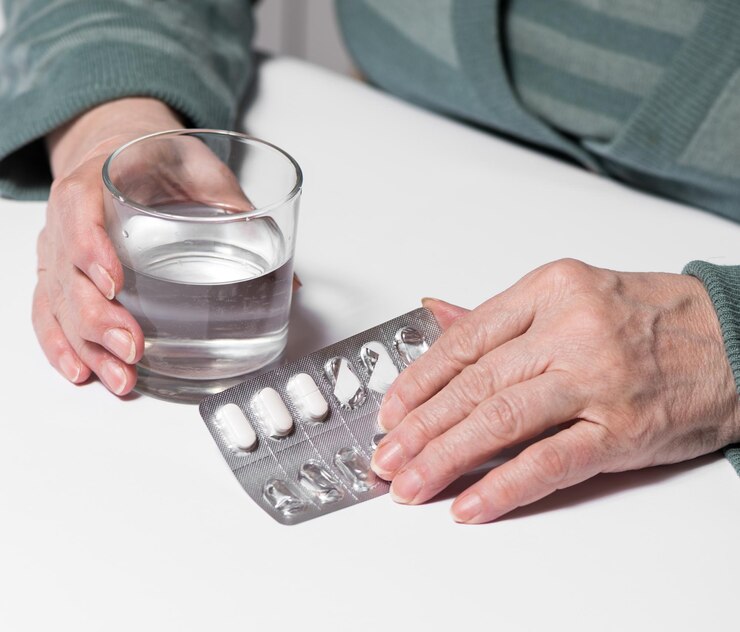Detoxification is a crucial step in the journey toward recovery from substance abuse. Outpatient detoxification services offer a flexible and less disruptive approach compared to inpatient programs. For those seeking support while maintaining daily responsibilities, understanding how outpatient detox works and its benefits can help in making an informed decision.
The Benefits of Choosing Outpatient Detoxification
Outpatient detoxification provides several advantages for individuals seeking recovery while continuing to manage their daily lives. One of the primary benefits is flexibility; patients can attend treatment sessions during the day or evening and return home afterward, allowing them to fulfill personal, professional, or educational commitments. This model is particularly beneficial for those with strong support systems at home and a stable living environment.
Another significant benefit is the reduced cost compared to inpatient detox programs. Outpatient detox allows individuals to avoid the expenses associated with a residential stay, making it a more affordable option for many. Additionally, it can offer a less intense approach, which may be suitable for those with less severe addiction issues or those who have already completed a preliminary phase of treatment.
How Outpatient Detox Works: An Overview
Outpatient detoxification involves a structured program where individuals receive medical and therapeutic support while living at home. The process typically begins with an initial assessment by a medical professional, who determines the appropriate detox plan based on the individual’s needs and substance use history.
Patients participate in regular detox sessions, which may include medical evaluations, counseling, and support groups. The frequency and duration of these sessions vary based on the severity of the addiction and the individual’s progress. Throughout the detox process, patients are monitored for withdrawal symptoms and provided with medical interventions as needed.
Types of Outpatient Detox Programs Available in Los Angeles
In Los Angeles, there are various outpatient detox programs tailored to different needs and preferences. These programs may include:
- Partial Hospitalization Programs (PHP): Provide more intensive treatment during the day but allow patients to return home in the evenings.
- Intensive Outpatient Programs (IOP): IOP offer a lower level of intensity than PHP but still provide several hours of therapy and support each week.
- Standard Outpatient Programs: Focus on less frequent sessions and are suitable for individuals with less severe withdrawal symptoms.
Each type of program is designed to cater to different levels of care and support, ensuring that individuals can find a suitable option based on their needs.
Comparing Outpatient Detox to Inpatient Detox: Key Differences
The primary difference between outpatient and inpatient detox lies in the level of supervision and the environment in which treatment occurs. Inpatient detox requires individuals to reside at a treatment facility for the duration of their detox process, offering 24/7 medical supervision and a controlled environment. This can be beneficial for those with severe addictions or those needing constant support.
Outpatient detox, on the other hand, allows individuals to receive treatment while living at home. This approach offers greater flexibility but requires individuals to have a stable and supportive home environment. Outpatient detox is typically recommended for those with less severe addiction issues or those who have already completed initial stages of treatment.
The Role of Medical Supervision in Outpatient Detox
Medical supervision is a critical component of outpatient detoxification. Healthcare professionals monitor patients for withdrawal symptoms and provide medical interventions to manage discomfort and prevent complications. This supervision ensures that patients can safely undergo detox without experiencing severe or potentially dangerous withdrawal effects.
Medical professionals involved in outpatient detox may include doctors, nurses, and addiction specialists. They work together to create a customized detox plan, offer medication if needed, and provide ongoing support to ensure a safe and effective detox process.
Integrating Therapy and Counseling with Outpatient Detox
Therapy and counseling are integral to the outpatient detox process. These components address the psychological and emotional aspects of addiction, helping individuals understand their behavior and develop coping strategies. Common therapeutic approaches include cognitive-behavioral therapy (CBT), motivational interviewing, and group therapy.
Incorporating therapy into outpatient detox helps individuals address the root causes of their addiction and prepare for long-term recovery. Counseling provides a supportive environment for individuals to explore their feelings, set goals, and receive guidance from trained professionals.

Success Rates and Effectiveness of Outpatient Detox Programs
The effectiveness of outpatient detox programs varies based on individual circumstances, including the severity of the addiction and the presence of a supportive home environment. Research shows that outpatient detox can be effective for individuals with less severe addiction issues and those who are motivated to engage in their recovery process.
Success rates for outpatient detox are often influenced by the quality of the program, the level of medical and therapeutic support provided, and the individual’s commitment to treatment. Programs that offer comprehensive care, including medical supervision and counseling, tend to have higher success rates.
Finding the Right Outpatient Detox Facility in Los Angeles
Choosing the right outpatient detox facility is crucial for a successful recovery experience. When evaluating facilities, consider factors such as the qualifications of the medical and therapeutic staff, the types of programs offered, and the facility’s reputation. Additionally, assess the support services available, such as counseling and aftercare programs.
Visiting potential facilities, speaking with staff, and reviewing patient testimonials can help you find a program that meets your needs and preferences.
Understanding the Costs and Insurance Options for Outpatient Detox
Outpatient detox costs can vary depending on the type of program and the services provided. Insurance coverage for outpatient detox may also differ based on your policy and provider. It is important to review your insurance benefits and speak with facility representatives to understand the costs and payment options available.
Many outpatient detox programs offer flexible payment plans and financial assistance to help make treatment more accessible. Understanding your financial responsibilities and exploring insurance options can help you manage the cost of detoxification.
The Importance of a Customized Detox Plan
A customized detox plan is essential for addressing the unique needs and circumstances of each individual. A personalized plan takes into account factors such as the type of substance used, the severity of addiction, and any co-occurring mental health conditions. Tailoring the detox process ensures that individuals receive the appropriate level of care and support to facilitate a successful recovery.
Preparing for Outpatient Detox: What to Expect
Preparing for outpatient detox involves several steps to ensure a smooth transition into the program. This preparation may include:
- Understanding the Process: Familiarize yourself with the detox process, including the types of treatments and therapies involved.
- Setting Up Support: Arrange for a supportive home environment and identify individuals who can offer emotional support during your detox.
- Gathering Documentation: Prepare any necessary documentation, such as insurance information and medical records.
By preparing in advance, you can approach outpatient detox with confidence and set the stage for a successful recovery journey.
Making the Most of Outpatient Detoxification Services in Los Angeles
Outpatient detoxification services offer a flexible and effective approach to overcoming addiction. By understanding the benefits, processes, and options available, you can make informed decisions about your treatment and recovery.
For more information on outpatient detox services and to find a program that meets your needs, contact All American Detox today. Our team is here to support you on your path to recovery and help you make the most of your detox experience.
FAQs
-
What are outpatient detoxification services in Los Angeles, CA? Outpatient detoxification programs provide support and medical supervision while allowing individuals to maintain their daily routines.
-
When are outpatient detoxification services in Los Angeles, CA appropriate? Outpatient services are suitable for individuals with milder addictions, those who have a strong support system, or those who cannot commit to an inpatient program.
-
What can I expect from an outpatient detoxification program in Los Angeles, CA? Expect regular appointments with medical professionals, medication management, and access to support groups and therapy.
-
How often will I need to attend outpatient detoxification sessions in Los Angeles, CA? The frequency of sessions varies depending on individual needs and the severity of addiction.
-
What are the benefits of choosing outpatient detoxification in Los Angeles, CA over inpatient treatment? Outpatient programs offer flexibility, allowing individuals to maintain their daily routines and responsibilities.
-
Are outpatient detoxification services in Los Angeles, CA covered by insurance? Insurance coverage may vary. Contact your provider to determine your specific benefits.
-
What are the costs associated with outpatient detoxification in Los Angeles, CA? Costs can vary depending on the program, location, and insurance coverage. Many programs offer financial assistance or payment plans.
-
How long does outpatient detoxification typically last in Los Angeles, CA? The duration varies depending on individual needs and the severity of addiction. It can last from several weeks to months.
-
Can outpatient detoxification in Los Angeles, CA be combined with other forms of treatment? Yes, outpatient detoxification can be combined with therapy, support groups, and other treatment modalities.
-
How can I find a reputable outpatient detoxification program in Los Angeles, CA? Research programs, consider factors like location, cost, insurance coverage, and the qualifications of the staff. Seek recommendations from healthcare providers or support groups.



